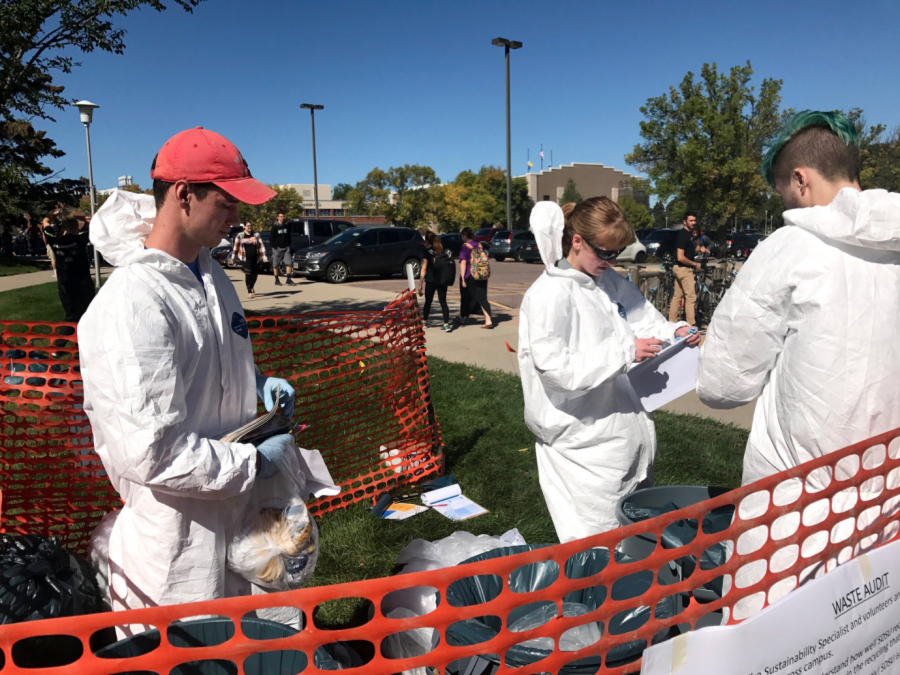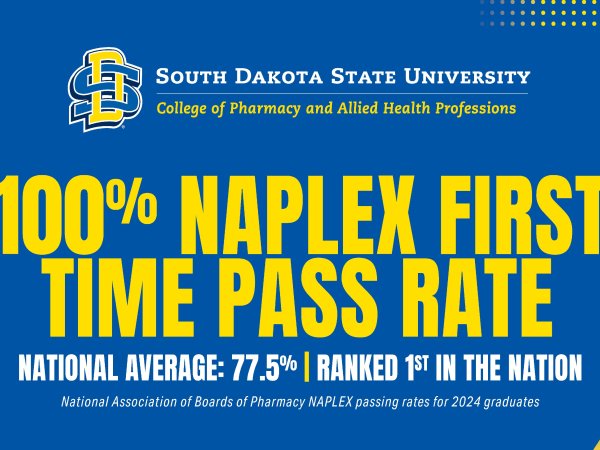Strapped in hazmat suits and sorting bags of trash into waste and recyclables outside The Union Sept. 20, South Dakota State Sustainability Specialist Jennifer McLaughlin set out to inform students about campus sustainability.
“After we do the sorting, we have an idea of what our recycling rate could be if everyone recycled absolutely correctly,” McLaughlin said.
The waste audit evaluates contamination rate, which shows how much trash is in recycling bins and vice versa.
One year ago, the SDSU contamination rate was 36 percent. Now it’s 26 percent.
“We want to make people more aware of recycling and encourage people to do it and to do it correctly as well,” McLaughlin said.
Kory Heier, junior math major who volunteered to conduct the waste audit, is president of the Student Sustainability Council. He believes misconceptions about what can and cannot be recycled stem from a lack of education about sustainability efforts.
Heier and members of the council plan to spread sustainability awareness on campus through presentations and exhibitions along Main Street of The Union.
Through conducting the waste audit, the group found the contamination rate is the lowest it has ever been.
McLaughlin conducted the waste audit as part of SDSU’s environmental sustainability goals. In addition to reducing the contamination rate, the goals include decreasing annual waste per person to less than 360 pounds and getting 50 percent of students and 23 percent of faculty to bike or carpool to campus.
Students’ Association Sen. Kaitlyn Frank said SDSU is encouraging more students to bike by increasing the quality of biking on campus.
Frank is a member of both the SDSU Bike Committee and SDSU Sustainability Committee.
“We’re working together to create a safer campus for biking to encourage more people to bike,” Frank said.
The SDSU Bike Club is also working to improve bike safety on and off campus.
“We discuss and practice how to safely ride in the street,” said Bike Club President Mark McLaughlin.
Change in conversations surrounding sustainability begins with small lifestyle changes in the lives of students and faculty, Jennifer McLaughlin said.
“At first it’s going to be a little hard, but once you get into it, it will just become part of your ways and you won’t necessarily have to think about it,” she said.



















